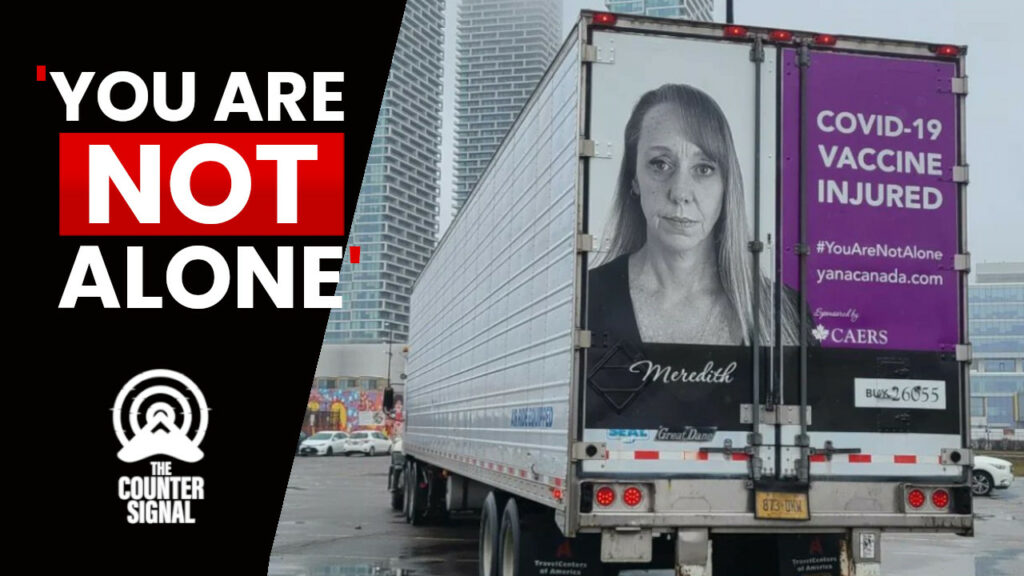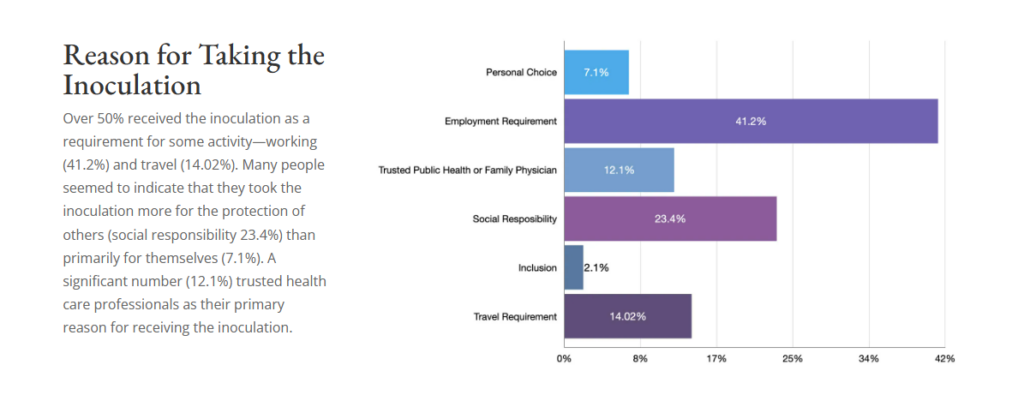A campaign to raise awareness for the thousands of Canadians who’ve suffered a COVID vaccine injury launched last month – and will spread across Canada in short order.

On January 19, a semi-truck drove through Toronto with a 8′ by 8′ decal featuring a COVID vaccine-injured Canadian woman.
The ‘You are Not Alone’ (YANA) campaign organizers called it a soft launch meant to inspire vaccine-injured Canadians to speak up – and truck drivers to volunteer.
“Many Canadians trusted their healthcare providers and government officials when they were told, ‘the COVID-19 vaccines are safe and effective,’” YANA’s website reads.
“They thought they were helping to stop the spread of COVID-19 and believed they were ‘doing the right thing.’”
The YANA, "You Are Not Alone " campaign has been launched!!! To bring awareness, bring down the stigma on injuries to the inoculations. If you would like to have a decal on your trailer or want to sponsor this awareness campaign,please apply here! https://t.co/5KxaYuaXu7 pic.twitter.com/ihwGQtRVz1
— CAERS (@CAERSinfo) February 3, 2023
YANA is sponsored by Canadian Adverse Event Reporting System (CAERS) and Freedom Fund Inc.
YANA’s website further states that COVID vaccine-injured Canadians didn’t know where to turn after being told by their government that adverse events are extremely rare.
The campaign is focused on “creating a greater awareness of the damaging effects of the COVID-19 inoculation.” Additionally, it represents unity among Canadians – vaccine-injured or otherwise.
“United, we are stronger together.”
Health Canada reports more than 10,000 Canadians suffered a “serious” adverse effect from the coerced COVID vaccine. Health Canada relies on data from the Canadian Adverse Events Following Immunization Surveillance System (CAEFISS).
However, CAERS — a non-governmental reporting system — suggests the number is much higher.

Among Canadians who reported a COVID vaccine adverse event to CAERS, only 3.9% said Health Canada’s CAEFISS accepted their claim.
“The rest were not accepted according to people that reported to us,” said CAERS President Max Daigle.
“We are investigating the accuracy of what Health Canada is displaying to Canadians in terms of adverse events reported.”
Beyond Daigle, CAERS is operated by healthcare professionals who wish to remain anonymous because regulatory bodies such as the College of Physicians and Surgeons of Ontario strip licenses from health professionals who challenge its narrative.
CAERS website includes stories of vaccine-injured Canadians who’ve spoken up – and whose pictures could be plastered on trucks in the coming weeks.
“Carrie from Alberta Canada is another brave woman who has health concerns after taking the C19 inoculation,” one story reads.
“A mother, wife, and daughter of an elderly mother, she has the responsibility of her family to care for. Carrie is left with the possibility of being injured for life because Public Health and the government of Canada did not do their job.”
“The effects on these injured people aren’t only biological—the mental anxiety they’re experiencing from trusting in the ‘system,’ is undeniable. When asking these institutions they trusted for help, they are faced with no solution. Is this acceptable?”
A combined $2.7 million has been given to fifty vaccine-injured Canadians as compensation from the same government that coerced the experimental products into them by threatening social and financial ruin. Many claims are still pending review.











